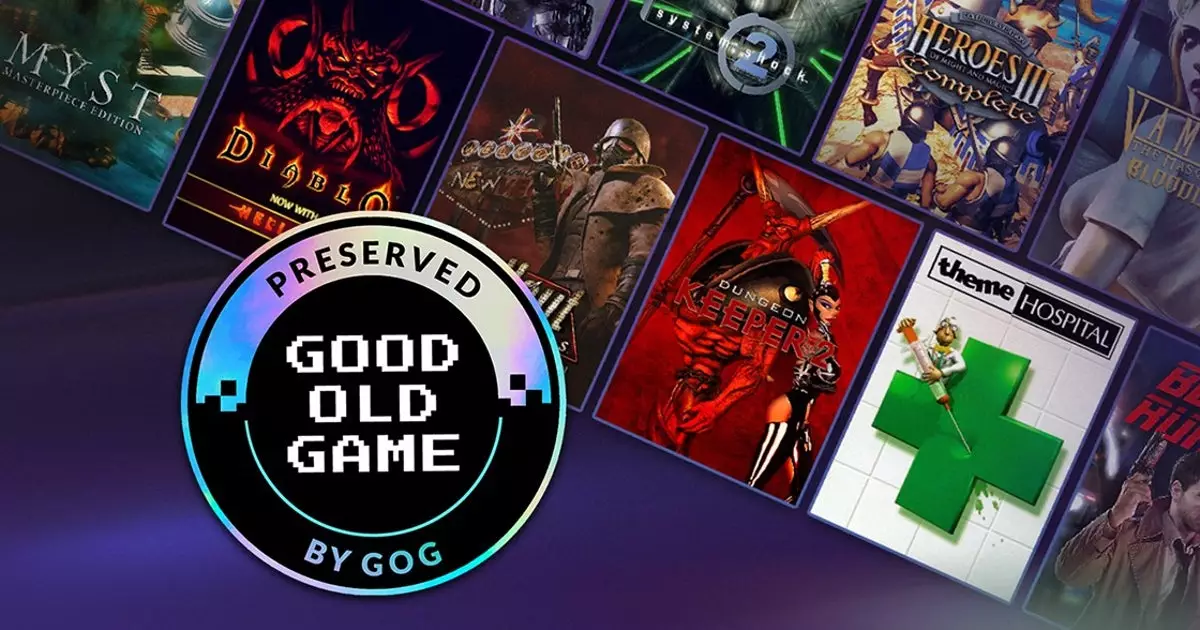Over the years, GOG, which initially carved its niche by promoting classic games, has gradually shifted focus toward integrating modern titles alongside its legacy collection. This transition risks undermining its reputation as a guardian of gaming history, as the platform increasingly resembles a DRM-free version of Steam. However, GOG has recently unveiled an ambitious initiative designed to unite the worlds of contemporary and vintage gaming: the GOG Preservation Program.
The GOG Preservation Program aims to breathe new life into classic games, ensuring they run smoothly on modern systems. This marks a substantial development in the company’s philosophy, as it attempts to reclaim its status as not just a distributor, but a steward of gaming heritage. In this effort, GOG’s team of developers will meticulously refine older titles by addressing bugs, enhancing gameplay mechanics, and adding contemporary features, such as modern video codecs and compatibility with Windows 10/11.
The results of these enhancements will be identifiable via a special “Good Old Game” badge on the store page, signifying that the title in question has passed GOG’s rigorous restoration process. This initiative not only provides players with a more polished experience but also offers the assurance that they can enjoy their games without the need for unofficial patches or extensive modding.
The inaugural lineup of games under the GOG Preservation Program includes more than 100 fan-favorite classics, including the likes of Resident Evil 1, 2, and 3, the original Diablo and its Hellfire expansion, System Shock 2, and Vampire: The Masquerade – Bloodlines. This commitment to authentic, unaltered gaming experiences speaks to a longing in the community for accessible versions of beloved titles that once defined gaming eras.
However, a critical lens reveals potential areas of concern. Is a focus on nostalgia-based remastering the right approach, especially as it risks sidelining gaming’s ever-evolving landscape? Even while players yearn for updated versions of classics, they also seek fresh narratives and original content that reflect contemporary themes and issues. Balancing the ghosts of gaming history with a vibrant future remains a challenging task for GOG.
One of the most significant hurdles for the GOG Preservation Program lies in obtaining permission from original developers and publishers to modify their games. Navigating the intricate landscape of copyright and intellectual property can be complex, making collaboration essential for the success of this initiative. Unfortunately, not all developers are willing to allow access to their game files, which could slow the progress of the program.
Moreover, while GOG expresses a dedication to preserving a wide range of titles—both contemporary and classic—this undertaking ultimately serves a dual purpose: to drive sales and profit. The company faces a delicate balancing act between maintaining its identity as a custodian of gaming history and fulfilling its commercial obligations. As it stands, the success of the GOG Preservation Program may hinge on its ability to skillfully navigate these business intricacies while staying true to its mission.
Despite these challenges, the GOG Preservation Program has arrived at a crucial time. As concerns about digital games becoming unplayable due to server shutdowns or online restrictions rise among gamers, GOG’s initiative could provide much-needed peace of mind and security. The appeal of offline compatibility cannot be overstated in an era where players are increasingly frustrated with the fragility of their digital collections.
The GOG Preservation Program reflects an ethical commitment to gaming heritage, acknowledging that while the industry continues to evolve, accessible and playable versions of classic titles must endure. If GOG manages to persevere against challenges from developers and rivals, it may cement its place as both a commercial force of modern gaming and a respected archivist of the past. This thoughtful convergence of nostalgia and innovation holds the potential to redefine how gamers experience and appreciate both the classics and the future of interactive entertainment.

